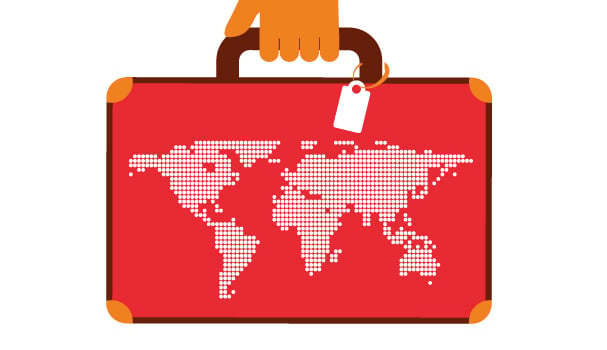Tax reform has rarely been off the agenda in the last year with the likes of Starbucks and Google being criticised over their tax practices. Of course, one of the advantages big companies have over their smaller counterparts is that they are able to more easily take advantage of legal tax-saving measures. For example, global companies are often seen as having the upper hand when competing in local markets with smaller operators because they can base themselves in countries with lower tax rates.
However, what is different is where the sale is made. Do you, as the online consumer, make your purchase in the UK or do you ‘virtually’ go to Ireland, the Netherlands or wherever and make the purchase there? The global age has evolved faster than the legislation governing it.
At a Prospect roundtable, arranged in partnership with the ICAEW and held in the run-up to the G20 meeting in St Petersburg, many called the current global business environment toxic. Sorting it demands strong national and G20 leadership, but the prize of a fair and efficient tax system is well worth the effort. The greatest challenge for the G20 this year will be working to restore trust in business with new measures on tax, trade and transparency.
Trust is an essential part of a working economy and it is needed to help create jobs and build fair societies. But tax avoidance, excessive pay at the top, and allegations of corruption have all helped create a toxic environment for business over the past few years. So how could the G20 go about improving trust and business behaviour?
Support the emerging OECD recommendations on tax
Since the financial crisis, government and public expectations on tax have shifted dramatically. To tackle confusion and unfairness in the taxation of multinational businesses, governments must update and simplify tax rules. The OECD has provided a road map for G20 nations to shape tax rules in a way that reflects the realities of modern technology and cross border trade. Implementing this will demand strong national and international leadership, but the prize of a fair and efficient international tax system is well worth the effort.
Because of the key role they play in making tax systems work, chartered accountants are part of the solution on tax avoidance. Our profession is ready to work with G20 nations and the OECD to ensure the success of international tax reforms.
Use a single set of high quality financial reporting standards
Growing global growth and trade is crucial to tackling poverty and boosting living standards. As well as progressing free trade agreements, G20 governments should help businesses speak a common global financial language, making them more transparent and boosting trade and investment. This means a strong commitment is needed to a single set of high quality financial reporting standards, known as International Financial Reporting Standards (IFRS). Governments could also benefit from committing to similar standards of reporting in public sector finances.
Encourage businesses to behave in a socially acceptable way
Restoring trust will require greater transparency and cultural change in the way that business works. Business needs more transparent finances and better risk management. The focus of business cannot simply be about profits for shareholders. Companies must consider their responsibilities to consumers, employees, investors and wider society. People expect businesses to have a purpose and to act in socially responsible ways, as well as within the law.
G20 leaders have a right to expect responsible behaviour from business leaders. They also have an obligation to create an environment in which responsible businesses succeed in the future. By working together, we can restore trust in business and build a fairer society. ![]()
Share via:









































